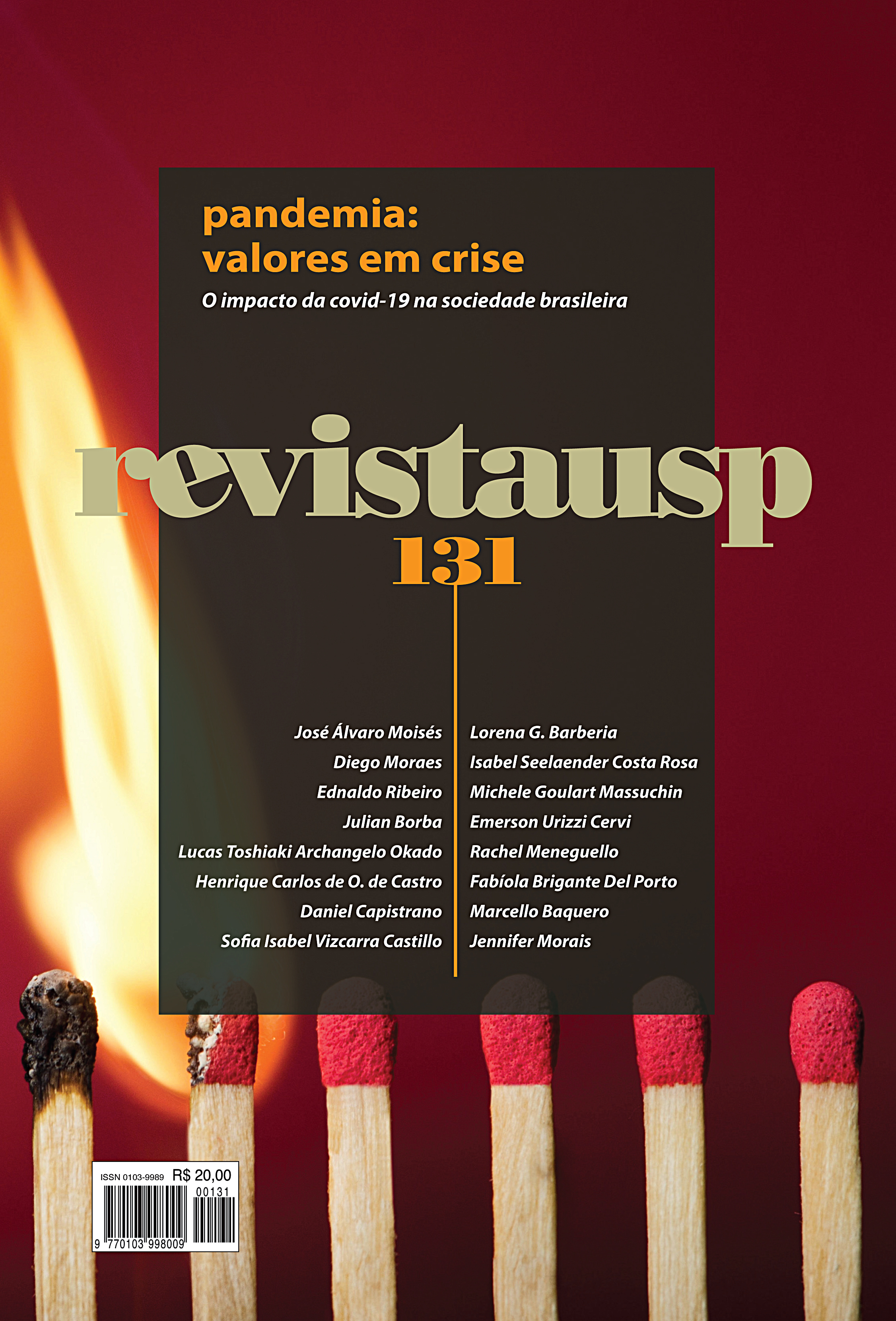De que maneira a ideologia afeta a disposição a se vacinar contra o Sars-Cov-2?
DOI:
https://doi.org/10.11606/issn.2316-9036.i131p47-64Palavras-chave:
vacinas, vacinação, hesitação vacinal, Brasil, ideologiaResumo
Desde o início da pandemia de covid-19, houve grande interesse acerca do papel intermediário exercido pela política e da maneira pela qual ela afeta decisões governamentais e individuais sobre o desenvolvimento e a procura por vacinas, bem como da implementação da vacinação. Um fator adicional que tem contribuído para a politização desses processos tem sido a difusão de informações falsas através das mídias sociais relacionadas ao vírus e às vacinas. Neste artigo, exploramos a forma como as atitudes acerca dos imunizantes desenvolvidos para proteger a população dos sintomas mais graves causados pelo Sars-Cov-2 estão correlacionadas com a ideologia. Utilizamos os dados provenientes da pesquisa “Valores em Crise” para analisar em que medida as atitudes dos eleitores em relação à vacinação afetam a probabilidade individual de vacinação contra o Sars-Cov-2.
Downloads
Downloads
Publicado
Edição
Seção
Licença
Copyright (c) 2021 Revista USP

Este trabalho está licenciado sob uma licença Creative Commons Attribution-NonCommercial-ShareAlike 4.0 International License.
|
Pertence à revista. Uma vez publicado o artigo, os direitos passam a ser da revista, sendo proibida a reprodução e a inclusão de trechos sem a permissão do editor. |


